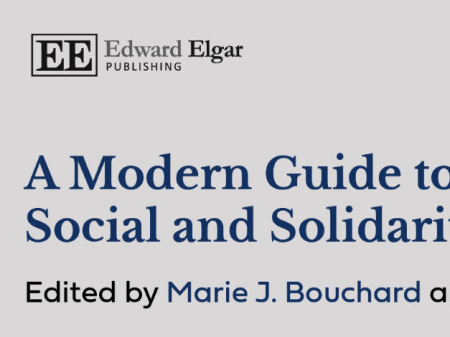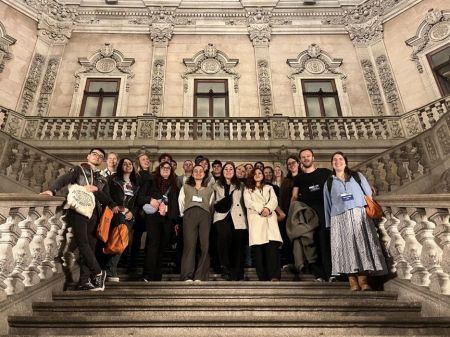We are pleased to share news of a new book relevant to…
Collaboration strenghtens with International Labour Organization
Following the International Co-operative Alliance General Assembly, the Deputy Director General of the International Labour Organization, Greg Vines, has been suggesting how the two organisations can work together.
The ILO’s ‘centennial project’ is looking at the future of work, including how it engages with private sector enterprises. It emphasises corporate social responsibility and improved labour standards across global supply chains, “an area where we see co-operative enterprises and their organisations playing an important role as value driven, principled businesses."
Mr Vines, who highlighted joint action by the ILO and the co-operative movement on sustainable development, statistics and labour standards in his speech at the Cape Town conference, said the most important discussion at the UN today is around the post 2015 development agenda.
The ILO has helped define a framework which calls for job creation and social protection to be included in the Universal Development Goals (UDGs). It has joined the ICA, the UN Research Institute for Social Development (UNRISD) and others to gather evidence on how co-ops have contributed to sustainable development and highlight their potential to help achieve the UDGs.
“We presented our preliminary findings at a workshop during the global conference and I was encouraged to see the outpouring of interest and ideas from top co-operative leaders, researchers and practitioners,” he said. “We’ll continue with an expert group meeting around this effort and hope to bring the important contribution of the co-operative model, and its relevance to sustainable development, to the forefront of our work. We strongly believe it will be critical to have co-operative voices heard.
He said showing how co-ops contributed to improved livelihoods and generation of quality employment required solid evidence. “Much has been done by the co-operative movement,” he says. “As a UN agency responsible for labour statistics, our engagement is often through the national statistical offices.
“I’m happy to note that during the 19th International Conference of Labour Statisticians in October, a resolution was adopted on statistics on co-operatives by national statistics offices from around the world.
“This calls for developmental work on the measurement of co-operatives and for a progress report to be ready for discussion at the 20th International Conference of Labour Statisticians in 2018. A critical next step will no doubt be for national statistics offices to engage with co-operative researchers and institutions to identify the type of indicators needed to show the co-operative advantage.”
He added: “We’re also keen to see how co-operative enterprises are faring as employers in creating decent work opportunities. We can integrate delivering fundamental rights and principles messages through co-operative enterprises and their apex institutions in our flagship projects like BetterWork and IPEC.
“It would be great if we could engage with co-operative enterprises and show how these collective enterprises are faring with respect to core labour standards of freedom of association, elimination of worst forms of child labour, forced labour, and discrimination.
“Engaging with co-operatives to advance these core labour standards is a concrete area of joint action during the Co-operative Decade.”




